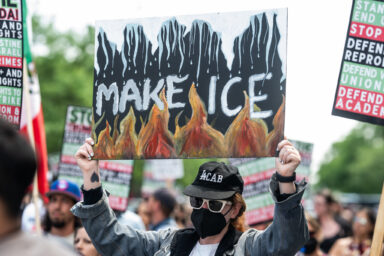Barack Obama is on the road these days, taking off after the special interests and elites, and defending the middle class. He is talking about equity and openness. He wants to end tax cuts for the wealthiest.
Given Obama’s rhetoric, one might think that in his appointment recently of a new chairman of the White House Council of Economic Advisers, he’d have turned to someone with special sensitivity to the plight of the average American.
Obama said he did just that. In naming his choice, Austan Goolsbee, the president declared:
“He’s not just a brilliant economist; he’s someone who has a deep appreciation of how the economy affects everyday people, and he talks about it in a way that’s easily understood,” Obama said.
Perhaps. But when you think of institutions that generate a deep appreciation of the plight of ordinary people, what do you think of? Surely not Skull and Bones.
In fact, Goolsbee, who is only 41 and therefore just two decades out of college, was a member of that exclusive Yale secret society that also produced so many bankers, members of the intelligence apparatus, and three generations in a row of Bushes. It’s not like Skull and Bones is a large outfit—just 15 people are “tapped” for it every year.
Goolsbee doesn’t want to talk about this. He demurred during an email exchange I had with him in 2008. The press itself is unsure of how to handle the matter, and usually doesn’t mention it at all, or at most, in passing, as part of long biographical sketches.
Perhaps it’s not fair to raise this issue. Perhaps secret societies are just trivial things, barely above fraternities. But they mean something to those who join—the promise of special access and insider status.
The public and the media have a right to question how membership might influence decisions and favors affecting another fraternity that is so good at gaming the system: Wall Street. And wonder who is left out.
To quote John F. Kennedy, speaking to the American Newspaper Publishers Association:
The very word “secrecy” is repugnant in a free and open society; and we are as a people inherently and historically opposed to secret societies, to secret oaths and to secret proceedings. We decided long ago that the dangers of excessive and unwarranted concealment of pertinent facts far outweighed the dangers which are cited to justify it.


